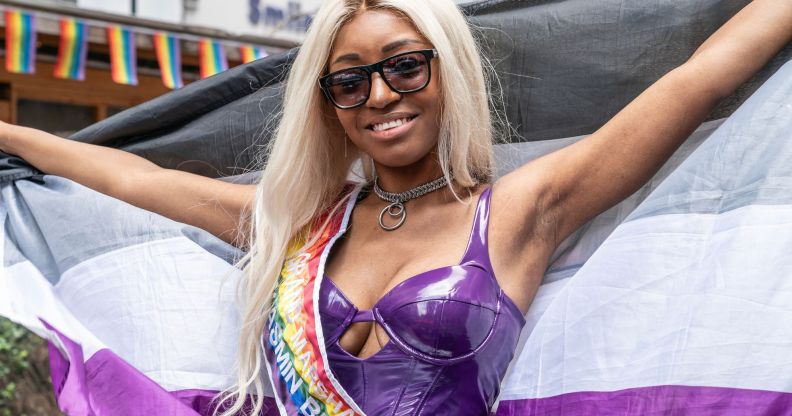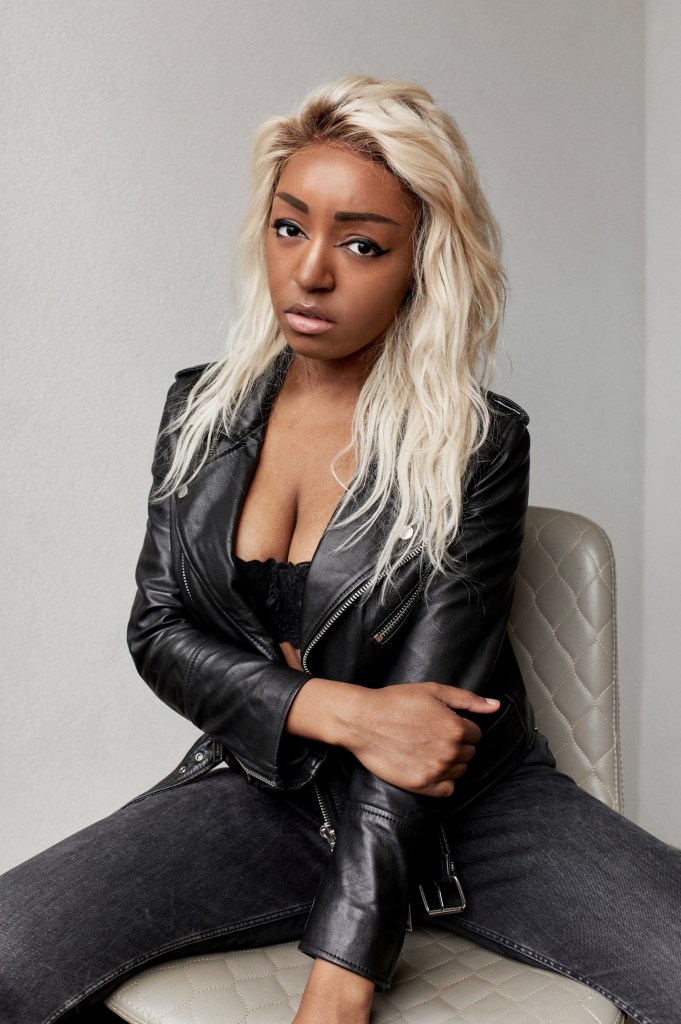Asexual activist on facing ‘inappropriate questions’ and ‘sexual harassment’

Asexual activist Yasmin Benoit. (Getty)
Yasmin Benoit is shutting down preconceived notions of what it means to be asexual, one conversation at a time.
The activist is tearing down barriers to representation and visibility as a model, having appeared at London Fashion Week this year. But despite amassing almost 75,000 followers on Instagram, whom she educates about asexual rights, not all those she encounters are respectful of her identity.
The “unlikely face of asexuality”, as she was dubbed by Cosmopolitan, tells PinkNews that she has been subjected to sexual harassment on nights out after being honest to those who show romantic interest in her.
Now in her twenties, Benoit came out in 2017, having worked out during puberty that she felt different to her peers. “I realised I was asexual and aromantic when everyone else realised they weren’t, as I was finishing primary school and starting secondary school,” she tells PinkNews.

Although her mother was “really supportive”, it took friends a while to catch up with what Benoit had already realised. “Even in a liberal, queer environment, people had a hard time believing that a Black girl was asexual,” she says.
“The support didn’t start to come until the success did. Then, suddenly, people believed me and were fans.”
Although Benoit now has a strong circle of friends who fully support her identity, she says she’s been subjected to sexual harassment by those who don’t believe her and won’t take “no” for an answer.
“[Sexual harassment] definitely happens quite a bit, particularly with men approaching me in the street, which is even more annoying than being approached in a bar. It’s difficult because lying feels unnatural but saying I’m asexual doesn’t go down well, I’ve learned.
“I’ve had [numerous] instances where it’s led to really inappropriate questions, sexual harassment and dangerous behaviour from the men who were interested.
“I’ve had a woman who persisted even when I said I’m not interested in having sex or dating anyone. All I can do is insist I’m not interested, without saying why, and get away quickly.”
But harassment often finds its way to Benoit’s online spaces, too, which has been “a pretty constant occurrence” since she became an activist.
“It tends to come in waves,” she explains. “It’ll be hundreds and hundreds of comments, maybe even thousands, just ridiculing, harassing and tearing me apart before the next surge.”
Aside from blocking users and removing inappropriate comments — which isn’t always possible on platforms like X — the influencer is committed to showing the world what acephobia looks like.
“It’s quite strange, but I’m getting more and more used to it,” she says. “The only way I can combat [harassment] is by making an example of it.
“There aren’t a lot of people who receive such visible and vicious hate en mass just for being asexual online, so if I can use it as an example of acephobia…At least then it can be something people can learn from.
“Then it doesn’t feel so pointless, and it’s reassuring to hear more supportive people say that the hate I get is ridiculous and undeserved.”
When someone does respectfully ask about her relationship status, “I tell them ‘I don’t have a relationship status because I don’t date.
“It’s never made sense to me to refer myself as ‘single’, and I’ve always found it odd when people refer to me as that. After all, you’re not born ‘single’, you’re just an individual like everyone else.
“Then you reach a certain age and you’re not just a person living life, you’re a ‘single’ person living the ‘single’ life. Fortunately, we don’t put a status on friendships,” Benoit concludes, proving that romantic relationships are not the be-all-and-end-all to a person’s life and happiness.
How did this story make you feel?

